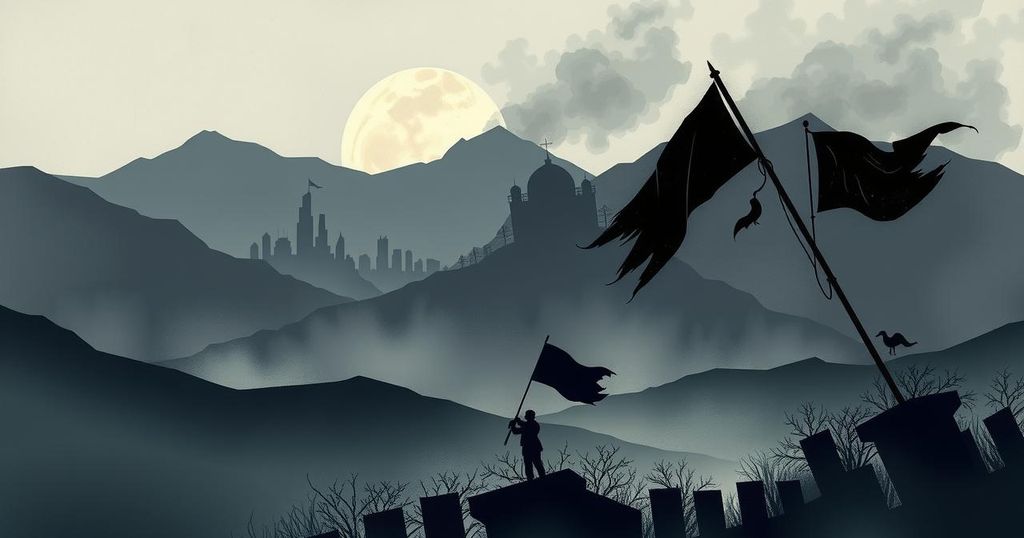Rwanda-backed M23 rebels have claimed control of Goma, causing panic among residents. This follows a deadline for the Congolese army to surrender. The conflict has roots in regional tensions, with reports indicating overwhelming rebel advances and a humanitarian crisis that has displaced millions.
On Monday, Rwanda-supported M23 rebels claimed control of Goma, the largest city in eastern Democratic Republic of Congo (DRC), causing widespread panic among its two million residents. This takeover followed the expiration of a 48-hour ultimatum issued by the rebels for the Congolese army to surrender. As the situation escalated, the Congolese government characterized the rebel advance as a “declaration of war.”
M23 forces, supplemented by thousands of Rwandan troops, had besieged Goma, threatening to exacerbate one of Africa’s most enduring conflicts. Reports indicated that Congolese armed forces, overwhelmed by the rebels, witnessed some of their units surrendering their weapons to the UN peacekeepers in the city. Explosions and gunfire were reported in central Goma, and there was also an alarming prison break due to the chaos.
Corneille Nangaa, the leader of a coalition including the M23, claimed that his forces had taken control while Congolese soldiers were surrendering. In response, government spokesman Patrick Muyaya urged protection for civilians in the face of the ongoing conflict. Meanwhile, the UN Security Council’s emergency meeting condemned Rwanda’s support for the rebels, accusing them of destabilizing the region.
Rwanda rebuffed these accusations, blaming the Congolese government for hindering peace negotiations and backing militias linked to the 1994 genocide. The DRC’s Minister of Foreign Affairs has called for sanctions against Rwanda’s mineral exports, particularly gold. On the humanitarian front, UN personnel were evacuated to Rwanda, and officials advised their citizens to leave Goma as tensions heightened.
The eastern DRC has long been a hotspot for militia conflict that traces back to the aftermath of Rwanda’s genocide. The M23 group’s previous capture of Goma in 2012 ended quickly with diplomatic intervention, but unrest resumed in 2022, allowing them to seize large areas of mineral-rich North Kivu. Despite efforts to disarm them, the M23 has remained active and well-resourced, claiming to protect Tutsis in Congo amid a backdrop of rising internal displacements.
The UN reports indicate that ongoing hostilities have displaced over three million people in eastern Congo, exacerbating an already dire humanitarian situation. The situation remains fluid, with developments in Goma likely to affect broader regional stability and the humanitarian response.
In recent years, the DRC has experienced a resurgence of violence linked to the M23 rebel group, which has historical ties to earlier Tutsi-led insurrections supported by Rwanda. The extended conflicts in the DRC, particularly in eastern provinces like North Kivu, have roots in regional tensions following the 1994 genocide in Rwanda. Minerals in the region, such as coltan, attract both illegal and official military interests while deeply impacting local populations. Governmental and international responses remain crucial in managing the humanitarian and security crises stemming from these conflicts.
The capture of Goma by M23 rebels marks a significant escalation in the conflict within the DRC, revealing both internal military deficiencies and external geopolitical tensions, particularly with Rwanda. The ongoing fighting has aggravated the humanitarian crisis, leading to increased displacements and requiring urgent international attention. Efforts to stabilize the region must address not only military engagements but also the extensive humanitarian needs of displaced populations.
Original Source: www.ndtv.com






